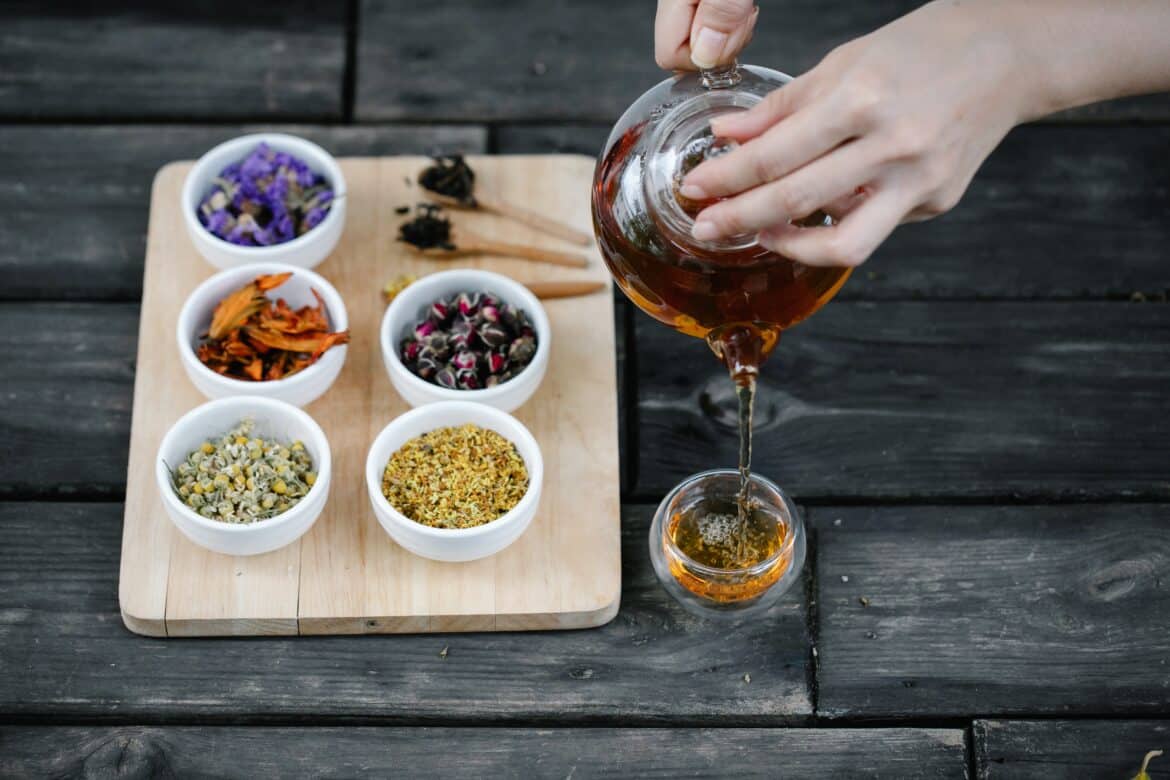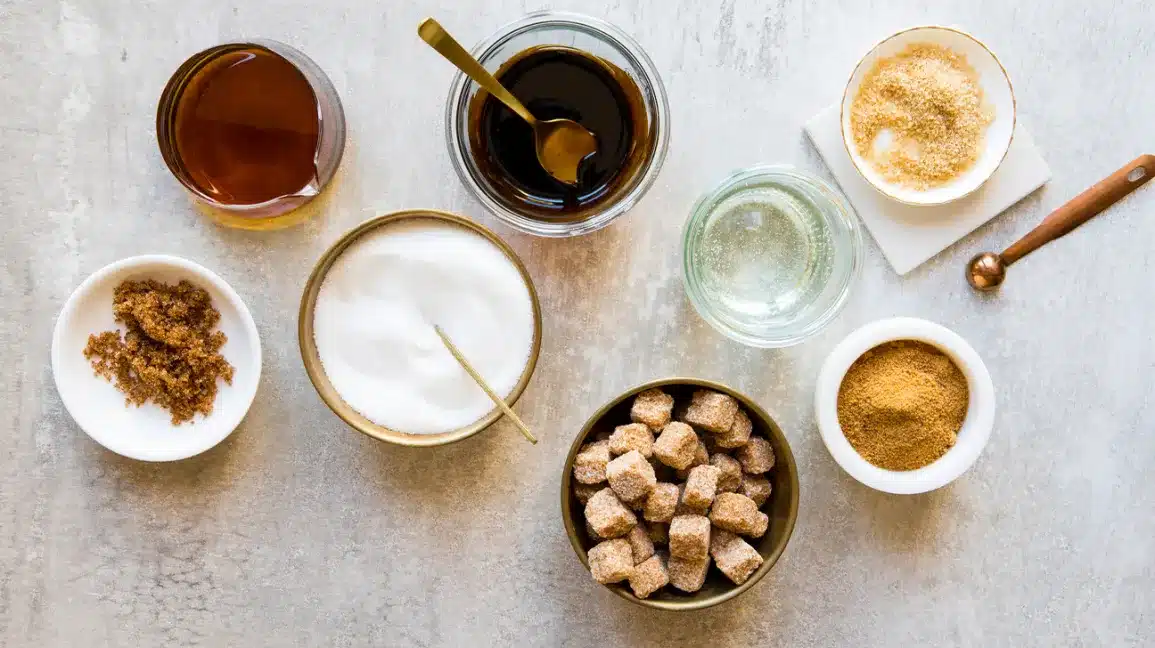Great first appointment with Jodie Jensen at Richmond Natural Medicine. Also the office staff is very helpful and responsive.
Compassionate, thorough and patient - oriented, professional group of doctors. Highly recommend this practice.
I have been going to RNM for years and have always had wonderful experiences. The staff up front is always welcoming and helpful, and Dr. Hollon's knowledge of the human body and how everything works together far surpasses that of your typical western medicine doctor. The whole office is warm and friendly--feels nothing like going to a typical doctor's office. If you're looking for a more natural way of healing your body, give this place a try!
Love another perspective to health on a holistic level.
I'm grateful to work with such a wonderful practice. All of the staff without exception have been kind and professional . Dr. Leah Hollon has been a tremendous ally in my healthcare, helping me navigate both traditional and alternative medicine with the best of both. She is very gifted in navigating complex health situations and brings a tremendous knowledge of healing options. She goes above and beyond for her patients and her care and compassion are part of her wonderful healing skills. I have worked with this practice for 10 years and have been blessed to improve a number of health conditions that western medicine could not help and am so grateful. I have a true ally and partner in my health with Dr Leah Hollon.
Dr. Jody is very thoughtful, thorough, and knowledgeable, and informative!She's a very kind person who listened to all my concerns and she and her colleagues work as a team. Combined, all the information is taken into careful consideration and I was provided with a great healthy maintenance plan.The office itself is in a great location and the environment is absolutely relaxing!I recommend this practice and Dr. Jody for everyone who wants to learn a natural and holistic approach to managing all your healthcare needs. You will not be disappointed!
My appt with Dr Jodi Jensen was thorough, comfortable and compassionate. I learned a lot about how my body is currently functioning and am excited to get started on my care plan. I would absolutely recommend this practice to anyone dealing with autoimmune disease, anxiety, or any other health concern. From the front desk staff, to the Drs, to the tea in the waiting room, this was a quality experience.
Love this team of women! Great doctors and great personalities and they are exceptional with improving your health!
I was honestly skeptical. I was afraid that I was going to be told that I needed to follow the newest trends like mold detoxing and parasite cleanses. My doctor listened to my concerns, went in depth in my medical history and daily life, we worked out a treatment plan together, and everything was laid out, simple and easy to follow. I feel like I actually got answers and am working towards body healing/wholeness. Not just another bandaid without treating the cause.
I always leave full of hope and feeling empowered about my health after an appointment with RNM!An appointment at RNM is without a doubt worth the investment of your time if you're looking for a holistic, preventative, root cause and take-charge approach to your future well being.
I received more answers on questions I had for years. I believe I came to the right place to get the solutions I have been hoping to find!
These are the smartest and kindest women I know. I am always blown away by the care I receive and feel amazing after each appointment. Thank you for always being the right place for my care and the most important member of my medical team!
I've been very pleased with Richmond Natural Medicine. Dr. Alexander has been a great help in guiding me towards being a healthier person. I truly believe this is a great option for those who want additional support beyond what traditional medicine can offer. I highly recommend Richmond Natural Medicine.
Dr Thompson and Richmond Natural Medicine as a practice are just the best. I feel listened to when I go and we address all of my symptoms in a way that my primary care and gastroenterologists pale in comparison to. I always leave hopeful and with a well defined plan of care.
Everyone at Richmond Natural Medicine is kind, helpful, and professional. From the ladies at the front desk, to Dr. Thompson, everyone has treated me with kindness and respect. I have spoken with them in person, over the phone, and done a virtual meeting. Dr. Thompson is respectful, listens, and offers feasible and achievable solutions for my issues. I trust her and appreciate her knowledge and care. The atmosphere in the office and waiting area is calming and peaceful. It is so reassuring to know there is a practice that offers this level of care and meets my needs in a practical and more natural way. I recommend this practice to anyone who is looking for alternative solutions outside of conventional medicine. 5 stars!
Dr. Jensen is an absolute professional that shares the same background in health care needs that I have. Having someone who understands how difficult this process is and has been for me is incredible and has helped me over the past 6 months I've been seeing her.I also have a history of head injuries and the craniosacral therapy treatments from her are extremely peaceful and the care with which she performs them is gentle and the impact is powerful. After a few treatments, I have felt the physical, and mental benefits of from them.And I say this all as a huge skeptic of everything. Some treatments haven't worked, some haven't been for me, but being open to the possibility of new treatments has seen real benefits.I say this part especially because Dr. Jensen treats without ego. If something does not work, or I am unsure of a treatment, she encourages me to research the treatment before making a treatment. If I've done my research and I choose not to have a treatment, she is supportive of my decision and we work together on an alternate treatment. She is an amazing person and truly cares and respects those who she heals.
After years of seeking answers from traditional doctors, we found Dr. Barranco, who listened kindly, provided thorough assessments, and found the root cause of a health concern in order to guide us to a care plan that works! So thankful for finding this practice!
This was the best experience i have ever had with a care provider. The diligence was immaculate!
Richmond Natural Medicine is the most welcoming space. The entire staff is kind. Rhe doctors are some of the most knowledgeable doctors I have ever experienced. I know when I enter RNM that I am going to receive thoughtful, thorough, quality care and insightful answers to my questions!
Dr. Franko is awesome. She recognizes that I have autonomy with my own body, and she listens to provide a holistic solution. She gives me options and allows me to choose.
My experience with Richmond Natural Medicine was fantastic! First impressions are everything and my expectations were surpassed! Dr. Thompson heard everything I said, acknowledged my concerns and my journey thus far, then came up with a multi-phased game plan to move my health forward! I had given up all hope with traditional medicine. Cannot wait to see where this journey takes me and my health!
What an amazing practice! I cannot saw enough wonderful things about everyone from the front desk to the doctors. The staff has always been kind and accommodating when making or rescheduling appointments and check-in/check-out. The practice always runs on time and I have never had to wait for an appointment. And even if you do, there is a separate, peaceful waiting room where you can drink tea as you wait for your doctor. A very calming environment!I have had experience, although not as a patient, with all of the doctors and can say confidently they are not only amazing providers, but also great people. I have numerous friends and family members that see multiple doctors at RNM and they share the same great experience that I do!Dr. Hollon cares for me and my entire family. Without a doubt, she is the most compassionate, kind, and knowledgeable provider we have ever seen. It is hard to describe this level of care, it is just something you feel when you are around her. She has helped us through numerous health situations, both routine and emergency, and I am beyond grateful for her care and support for me and my family.
They treated me awesome answered all my questions and concerns made me they were really trying to help me make a difference in my life and illness I just want to say thank you
Dr Franko is such a kind and caring doctor. She has helped my daughter and I feel our best selves. She takes so much time to make sure you are comfortable. I always feel so seen and understood. No question is ever unanswered and she takes so much time answering all my questions. I can’t say enough wonderful things about her and the office.
Dr. Thompson makes you feel like you are her only patient. I am very pleased with the treatment I have received. I am happy I found Richmond natural medicine since seen Dr. Thompson my condition has improve I no longer have to take prescription antibiotics. I highly recommend this practice. They don't rush or dismiss patients and truly listen. I've never felt so listened to in a medical setting. Dr. Thompson works hard to find the best solutions to improve your overall health. Thank you Richmond Natural Medicine.
Dr. Thompson is wonderful! In the past I have felt that doctors brushed off my concerns or wrote them off as “normal” when I didn’t feel they were. Dr. Thompson was so kind and thorough. I left feeling validated and like I finally had hope of feeling better. I would recommend Richmond Natural Medicine to anyone!
I’m so very happy I found you! I’ve been looking for this type of health care modality for quite some time. I am on the mend because of the focused care I am receiving. Some of my issues were helped almost immediately, and my others I’m seeing/feeling improvement in over time.I wish to express special thanks to Dr. Barranco.Your attention to how every aspect of who I am (mental, emotional, physical, psychological) is taken into account as you proceed to help me heal myself is simply awesome.I’m learning about modalities that have been around for ages that I wasn’t aware of, and they are working very well! I’m so pleased with my results. THIS is TRUE health care!To anyone searching I say: If what you’re doing isn’t working; If you’re tired of just medicating your symptoms and dealing with side affects; If you’ve been written off by other practitioners as having “phantom” ailments they can’t help you with, maybe even an illness deemed too far gone to mend, try Richmond Natural Medicine. Just try them. There is a list on their website of what they specialize in. Check it out. You might be pleasantly surprised by the results.
Absolutely love coming here. The environment is restful, the time taken to get to know me and my needs is the best and the care plans have been very helpful.
Best time I've had at a doctor's in a long time. I felt like I was listened to and like they are actually trying to help me get better. Update: after spending 13+ years at a traditional doctor's, having test after test ran and being told that I was "fine and just needed counseling" I have been validated. In less than 4 visits a doctor here found out my issue and I've already begun treatments. I'm so happy I tried a natural medicine doctor and I will recommend ANYONE to come here and finally get your answers! I'm not even the only person I know who has had this experience (being gaslit by normal doctors then after a few visits at a natural, finally having answers)
I felt relaxed from the minute I walked in the door, warm reception, comfortable separate waiting room and always feel like I get exceptional care with Dr. Hollon!
I enjoyed my experience. From the time I walked into the office I felt very welcomed. The thoroughness of Dr. Barranco during my appointment truly made me feel that she was concerned for my overall health. I am truly grateful for the experience and look forward to future appointments.
Excellent very informative
I've never been treated with such care when seeing a physician. I am so pleased with the atmosphere, the staff, and the level of thoroughness that went into me and my health concerns. I'm so thankful to have found this practice and will encourage others to check them out as well. Thank you, by far the best treatment I've had around medical professionals.
All staff are kind and compassionate. Would highly recommend to anyone.
From the time I submitted a request online, to the prompt phone call the next morning, to the amazing friendly staff and lovely waiting room and most importantly the conversation my doctor and I had to understand my health, was the experience I expect from a health professional organization but haven't received in so long. From the moment I walked in, I knew this was the answer to taking charge of my life and my health with a practice that leads with compassion. This is what health care is "supposed" to be. I am hopeful...finally. I appreciate this group and their mission and I give them a huge A++++!
I’m a huge fan of Richmond Natural Medicine. These doctors really listen to patients offering solutions for real health. Their healing plan is specific for each patient, and is not suppression medicine. They excel in determining which foods work and don’t work for you. I’m so much healthier after I adopted their recommendations. I found vitality, so did my family. The best health investment I ever made!
Outstanding Doctor, who listens, who hears and then suggests real actions, supplements that make a change ! Gentle, skilled staff.
I've maintaineda secure feeling with my practitioner with my health and well-being that was first and foremost. Along with having my best interest at heart. I'm very satisfied here.
I’ve been seeing Dr. Beliy for about 6 months. I’ve struggled with GI issues for over a decade and been taking various prescriptive meds to treat it.During my first appt, I almost cried with happiness when Dr. Beliy spent the time asking questions and listening to me. I was only used to quick 10-15 min check ups before my visit here. She put together a personalized plan for me and I received detailed notes after the appt.Since that first appt, I’ve continued my visits with Dr. Beliy and she’s not only helped my GI issues, but also sleep, nutrition, stress management, and more. I’ve never felt better in my life. I highly recommend to anyone who’s looking for a doctor that will invest the time and effort for each and every patient.
After my first appointment I feel very hopeful! The initial appointment was in depth, which made me feel like I was finally being listened to. Dr. Paskar also gave me options on which way I would like to go with my treatment options. I loved that it wasn’t one size fits all and that I felt like I had a say in my treatment plan!
Richmond Natural Medicine is hands on care with doctors that take time with patients. I'm a relatively new patient but have made good progress with an uber-difficult issue. ***Four months later I am impressed with the knowledge, care and enthusiasm shown by my doctor and though I am still on the mend, the main issue has been addressed thoroughly and I now have abilities I did not four months ago.
I really like Dr Gerep. I think I’m going to enjoy working with her. I felt like she heard me and understood where I was coming from at this point in my journey.
Wonderful. I am so grateful for the detailed plan to improve health. I'm going through it now and breaking it up to incorporate many of the components in my daily regiment. Really appreciate Dr. Gerep's extensive insight.
Dr. Gerep was super friendly and welcoming throughout the entirety of the appointment. I feel that I was genuinely cared for and she was actually interested in my health. She took my concerns seriously and worked with my lifestyle, preferences, and budget. This place is pricy and it's unfortunate they don't accept insurance (out of their control so no fault there) so I saved a bit before coming, but I feel it's very worth it. I love the approach here and it's exactly what I was looking for! I'm very pleased with my visit and am excited to continue treatment.
Dr. Ferreira is fantastic. She was focused on my individual care and shared a wealth of knowledge directly related to my concerns.
Loved the atmosphere and the wealth of knowledge that was given to me by Dr Gerep. Will definitely be returning!!!!
I was, and still am, extremely satisfied with my time with Dr. Paskar! I left my appointment excited about the plan she set forth for me and our plans in the near future when I return for a follow-up. I feel we addressed all my pressing issues and that Dr. Paskar listened to my concerns with intent and no judgement. She is absolutely amazing!! I recommend her to anyone and everyone in need of a doctor of this magnitude. A doctor who empowers patients to take control of their own health naturally is truly a doctor for the people. Thank you, Dr. Paskar!
I felt more understood by my provider here than I have with any other doctor. She took the time to provide me with additional resources and helped me understand the science behind my health. Thank you Richmond Natural Medicine!
I love it at Richmond Natural Medicine. I was in search for a place where I could receive preventative care for holistic health. The care Dr. Gerep gives is individualized and personalized to my needs. I appreciate the deep research that goes into my care and not a prescribed answer given immediately. She is always taking time to thoroughly find the best solutions for me.
I just had my first follow up visit and it was great. I really feel like I am being heard and all aspects of my health are taken into consideration. No matter how minor a concern, Dr. Vanessa always writes it down and has great suggestions and explanations for me. I finally feel I am headed on a path to understanding my health and taking control! Thank you!!
My experience has been amazing. Dr. Paskar is so patient and informative. She’s the best doctor and I’m already experiencing healing in my body from us working together for just 3 months. If you have IBD, I would highly recommend Dr. Paskar.
I feel like I have finally found a knowledgeable doctor who is taking the time to listen and learn all about me. Dr. Beliy is interested in treating the root issue instead of the symptoms and believes in the power of natural remedies. I couldn’t be happier with the progress made with her in such a short time. I’m learning how to implement important lifestyle changes, such as incorporating seeds into my diet to regulate hormones and to reduce stress with a lavender essential oils diffuser at my bedside. I feel great about the treatment plans because they are thoughtful, doable, specific to my individual needs, and not subjecting my body to experimental drugs or other questionable toxins. The results I have experienced have been pretty immediate and are evidence, in and of themself, that natural remedies work! I appreciate having Dr. Beliy guide me through my health journey, and having such a knowledgeable professional help keep me accountable for my lifestyle choices.
Hopeful. Dr. Reckers was understanding of how willing and able to change my teenager was at our first visit.
I talk about and recommend your practice to almost every single person I encounter! My life has been changed for the better and I cannot imagine not having this practice as an I integral part of my life.
When I moved to Richmond from the San Francisco Bay Area in 2019 I thought I would never find a naturopathic office like the one I left behind. BUT, then came along Dr Hollon and Richmond Natural Medicine! I feel like the reason I moved was to be under her care! Although my health is still not yet stable, I am on the path to it and with more knowledge of what My body has been and is going through. I love the staff and the service is unmatched! Thank you!!!
Dr. Reckers was super attentive, pleasant and very easy to talk to. She asked great questions & I sensed a sincere interest in my well-being and how to best help me feel better.
I feel like I am finally on the path to getting some answers to my chronic health issues that modern medicine has brushed aside or completely ignored over the years. I knew from my own research over the years that the holistic approach would provide the best results and from that I did implement some things into my life that did provide relief but ultimately you need someone knowledgeable to guide you through this. I have just begun my journey with this practice, but already I have found some answers and once my lab results are in I can't wait to begin the treatment plan because I know in my heart I will finally start to feel better.
Kind and compassionate are just two of the words to describe Richmond Natural Medicine. Would highly recommend them.
Life changing! This place is amazing and I highly recommend to anyone that struggles to find the right cure for them, naturopathy treats the natural way without side effect. You get a personalized plan that fits your needs and the doctors actually listen to you and go deep into your medical history, ask a ton of questions and follow-up with you constantly. I've been working with Dr. Paskar and Dr. Hollon trying to find a cure for my son's PANDA's Syndrome (that's one of his problems, he also has Autism and Tic Disorder) and I can say they're both AMAZING to work with!!! I joined this place in January and so far I can see 50% improvement in every area that he used to struggle, it's like a miracle! I've been fighting with this for almost 5 years, I mean this is HUGE!!! I will stay with them and continue my journey because I know I'm on the right path. My heart is smiling!
I felt very comfortable and at ease in talking with Dr. Reckers. I felt like she was listening intently and picking up on things I said that I might not have thought were significant. I felt that Dr. Reckers seemed genuinely interested in helping me to find a path to better overall health with less pain.Thank you very much.
I had the BEST experience with Dr. Viktoriya Beliy. She was super attentive, asked all the right questions, dug deeper where it was needed, and really EXPLAINED what I was going through and would could cause it. This was one of the most comfortable experiences I've had talking to a professional since I was diagnosed with DOR. Her personalized plan for me was so comprehensive and detailed - it focused on my mind and body, not just the issues I was having. I would highly recommend RNM and Dr. Beliy!
Service at Richmond Natural Medicine is great - the video appointment was easy. Uploading information into portal easy. Treats whole-body, as always happy with the service at Richmond Natural Medicine!
Such a great and thorough appointment. Dr Reckers was excellent and listened and I feel like we have a good starter plan
This was my third visit to RNM and I really enjoyed talking to Dr. Beliy. She was very knowledgable about my concerns and listened attentively during our conversation. Overall, it was a great experience and I am looking forward to moving forward with my natural health goals. Thank you RNM!
I just wanted to thank Dr. Beliy for taking the time to listen to me. There was a snafu with getting my online account set up and I was so afraid I would have to miss the appointment, but she saw me anyway and we got everything squared away. She took 2 hours to go over a metric butt ton of labs I had done and go over my medical history. I started out trying to talk so fast and get as much info out as I could because I was so used to doctors cutting me off and not listening, it was just really nice to be heard and understood. Best of all, it was great to finally have someone tell me what has been going on with me. Ladies, if you feel like something is wrong and you don't know what it is, and other docs have told you that you're perfectly fine or just crazy, contact these folks here and get another opinion from someone that will listen and care.
I love Richmond Natural Medicine. Dr. Reckers is my Doctor. I want holistic products for my health care and not a prescription that often treats the symptoms but not the source of the problem. I have found the products and health remedies that I desire at Richmond Natural Medicine. I have not given up on my traditional doctor but I prefer the Natural Route.
I scheduled an appointment with Dr.Beliy for my acne concerns....and she was so amazing, I’ve never had a doctor before that took their time to understand and try to figure out the root cause of what’s going on rather than just prescribing a medicine and acting like you’re just another patient. She came up with a personalized plan for me and you could tell she put thought into everything she was telling me. I’m excited to finally get my acne under control!!! Natural medicine is the the way to go!
We were able to book an appointment within the same week with Dr. Beliy at a convenient time, great office location. First time seeing her as our old provider moved out of state. Dr. Beliy Spent 2 hrs with us and reviewed all my child’s health info and provided recommendations (nutrition, supplements, life style). All supplements available on site and was able to use my Health flex savings account.
I was extremely comfortable from the minute I walked in the door. Highly recommend this place especially if you want to heal yourself. A breathe of fresh air!
I am extremely hopeful that you have figured out the root cause of most of my issues & the plan in place will reduce symptoms that have been plaguing me for 30+ years. Dr. Hollon explained everything perfectly & I am thankful that she started RNM. I’m looking forward to getting my life back! Thank you!
We are super excited to work with Dr. Reckers! She was so kind and patient to listen to every symptom my daughter is having. Dr. Reckers truly wanted to understand everything that was going on that might be leading to our daughter's skin issues! We have hope for healing these issues without damaging conventional medicine!
I love love love Dr Beliy she always takes time and care to hear me. Her knowledge is vast. I really appreciate the explanations she gives for each action we’re taking. So happy to have found these doctors. My life is changed.
We're so grateful to have access to these knowledgeable, compassionate professionals! They're a terrific complement to our traditional physicians, in fact they've been able to accomplish a few things that have eluded other physicians. If you are feeling like just another drop in your practitioners' bucket or are not getting the results you need, give the folks at RNM a try - you'll be glad you did!
I felt like I have meet a kindred spirit in Mary Mielke, ND.I strongly believe I have found someone to help me in my quest of good health.
Dr Mike very empathetic, appeared to hear what I said. Suggested remedies to help with my problem,
Highly recommend. Dr. Biley was thorough and tailored a plan just for my daughter. We didn't feel rushed or pressured. Her enthusiasm for the task made us feel that she was excited to help! Very happy we found this provider.
I've met with two doctors from this practice (one before she moved out of state). Everyone from the receptionists to the doctors have been courteous, professional and NOT pushy (e.g. when making product recommendations).Dr. Mielke answered all of my questions and was professional, honest & straight forward - qualities I deeply appreciate in a person but particularly in a health care provider.I have nothing but praise for this practice and have already referred two people to them.
Dr. Deborah Nixdorf, of Richmond Natural Medicine, has been my naturopath for ten years. During that time, she helped bring me from surviving to thriving, by coaching me in the ways of natural medicine, acupuncture, an anti-inflammatory diet, discovering my food allergies, and dealing with the stress of life. Throughout my recovery, I participated with her in choosing my health priorities and goal setting. She is an excellent listener and care specialist who is able to zero in on her patients' needs. I recommend her highly.
When I got to my appointment I felt like the world was on my shoulders. I left the appointment with hope.
Richmond Natural Medicine is a group of very caring doctors who take time with their patients. I am a patient since few years and did lots of progress on my journey to recover my health. I highly recommend them.
For the first time in years I feel like I was heard. All of my health concerns are being addressed in a manner that does not include drugs with horrible side effects. I'm looking forward to feeling better.
It is wonderful seeing a doc and being listened to and feeling relaxed. And no conventional doc talks with you for an hour! I am looking forward to great results! Thank you Dr. Mielke! 🥰
I always enjoy my appts with Dr. Reckers. I love that she thinks out of the box about my health. I love that she wants to get to the root of my issues and not just go after the symptoms. I recommend RNM and her to everyone who will listen! I’ve even been so inspired by my experience with RNM that I’m taking my dog to a holistic dr now.
I received excellent results my first visit three years ago .. results that were so good I only went to a "medical" doctor for a broken bone and a spider bite .. my second visit was last week and I am already noticing great results .. the "natural way" is by far the best way when a knowledgeable staff is involved .. thanks again!










